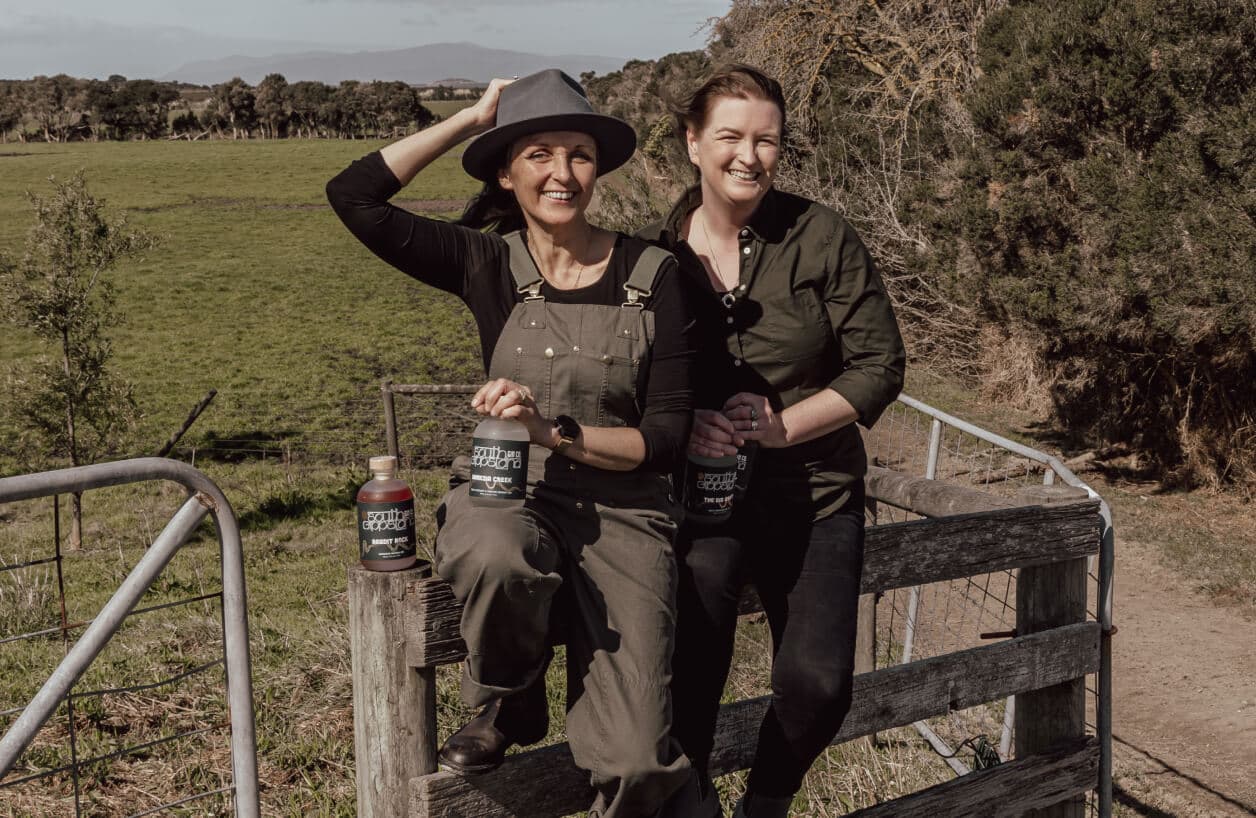
- Case Studies
Meet the Winners of the 2024 Zeller Regional Small Business Grant
This year, Zeller launched the inaugural Zeller Regional Small Business Grant, offering four regional Australian businesses a share in $10,000 to equip them with the technology, resources, and funding they need to succeed. Meet this year’s winners and learn how they will be using the money to grow their businesses.
New point-of-sale hardware for a bakery in Warrnambool, Victoria.
William Jane has been a baker for eighteen years. After doing an apprenticeship under the late Piero Brunetti – the founder and namesake of Melbourne’s iconic cake shop – William cut his teeth in bakeries across London, Chennai, and Byron Bay, before returning home and opening his business, Jane Dough, in Warrnambool. Filling a gap in the market, the artisan baker quickly won the hearts of locals with a core range of doughnuts, pastries, and sourdough breads. Initially a wholesale-only business, the COVID-19 pandemic led William to add a retail arm, which has been increasingly gaining momentum since its 2020 launch.
Despite having diversified the business, the rising cost of goods has put a significant strain on the bakery for the best part of the last two years. “We used to buy butter sheets for $200 a box, they’re now $350. And we’re constantly getting hit with 15-25% increases on the cost of flour,” says William, “It’s been way more challenging than the pandemic.” Thanks to the Zeller Regional Small Business Grant, the bakery will be able to upgrade its outdated point-of-sale hardware for the front and back of house, “Our current POS terminal is so old we can’t load the software onto it properly,” says William, “The grant will help us pay for a new tablet for the counter and for the staff at the back, as well as some new signage and awnings.”



A water tank for a gin distillery in Foster, Victoria.
By day, Jane Searle and Lisa Branch are teachers in Melbourne. By night, they’re gin distillers in the small Gippsland town of Foster. What started as a fun idea discussed over dinner, evolved, officially, into South Gippsland Gin Co. in November 2023. “Before this, our only experience with gin was drinking it!” laughs Jane. “But we're both pretty driven, so we did some research and bought all the materials we needed, and just started playing around with recipes, infusing different botanicals into each run,” she explains. Since then, they’ve honed their craft, and now offer a range of four gins, each named after their favourite places in Wilsons Promontory.
The women operate the boutique distillery from Lisa’s property in Foster, and have plans to open a gin school and a cellar door, but there are a few upgrades that need to happen first. “Each run of gin takes about 230 litres of filtered water,” explains Jane, “But the old dairy where we are operating from doesn’t have filtered water. At the moment, we either have to transport it from my house, which is a ten-minute drive away, or buy bottled water.” The Zeller Regional Small Business Grant will allow them to buy a rainwater tank and filter their water on-site. “That will be a game changer,” says Jane.



A tech upgrade for a nursery in Gresford, New South Wales.
Noel Jupp opened Riverdene Nursery in 1956, and has never looked back. The now 90-year-old continues to work seven days a week, sowing seed and propagating stock alongside his daughter Rosemary, who joined the family venture 34 years ago. The long-running success of the business can largely be attributed to Noel’s encyclopaedic knowledge of plants and his unwavering work ethic. “He's got a remarkable ability to recognise species,” says Rosemary, “and he used to put in a 16-hour day”. Over the years, the nursery has carved a niche for itself, catering to land care organisations or local councils that require native plants adapted to specific climates and growing conditions.
While Noel is still very active in the business, his deteriorating health has forced him to slow down, and as a result, Rosemary is looking to improve efficiency in other areas: “Once upon a time, Noel would have wandered around and made a mental note of what stock was getting low,” shes says, “But now, we’re writing paper lists and then inputting them into an inventory system. It’s not efficient.” Thanks to the Zeller Regional Small Business Grant, they intend on purchasing an iPad which the staff can use to input the data directly while walking around the nursery. “It would just remove those extra unnecessary steps, and allow me to focus on other areas of the business,” Rosemary explains.



A dining room refurbishment in Northcliffe, Western Australia.
If you’re walking the Bibbulmun Track or riding the Munda Biddi Trail through the southwestern shire of Manjimup, there’s a chance you’ll stumble through the small town of Northcliffe, where Penelope Wood runs her restaurant – Naughty Noodle Bar. “We're a real end-of-the-line kind of place” she says, “It’s big forest country. We have luscious soils and we benefit from that coastal climate,” she explains. A climate that allows her to sustain her restaurant primarily using home-grown produce. Opened in 2021, Naughty Noodle Bar, caters mainly to the tourist trade, serving up a variety of fresh and seasonal meals, all cooked by Penelope.
However, dwindling accommodation in the area combined with poor weather means that customers can be few and far between during the winter months. To bring in more revenue, Penelope has diversified her offering, opening up a bed and breakfast as well as a small antiques shop, but she’s seen a steady decline in the demand for antiques, which she attributes to online competition. Having been awarded the Zeller Regional Small Business Grant, Penelope intends to redecorate the room she was using as a shop into a more spacious dining room. “Having the budget at a time of year when income is really limited, is a huge help. It means I can take this opportunity to redo the space, and get it ready for the busier trading period over summer.”



Zeller is here to support Australian businesses.
Zeller is a Melbourne-based financial services company that gives Australians the tools they need to run and grow their businesses. From EFTPOS to accounts, cards, and invoicing, our tools are designed to make financial management simple and affordable, so that you can focus on what you do best. If you’d like to learn how Zeller can keep more money in your business, find out more here or speak to a member of our Sales Team today.
Sign up to Zeller’s newsletter and follow us on Facebook and Instagram to find out when applications open for the Zeller Regional Small Business Grant 2025.

Zeller Presents: Welcome to Inglewood
Discover the story behind the regional town of Inglewood, Victoria, and three local businesses whose spirit and resilience in the face of adversity is helping them thrive.
